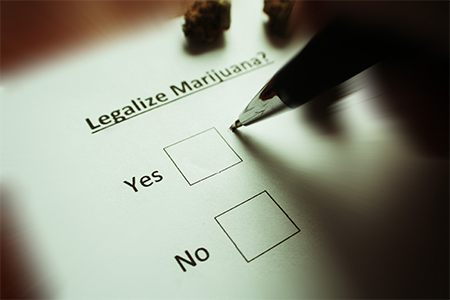Op-ed by Sen. Jim Brewster
Let all citizens have their say on legalizing marijuana.
At our fingertips is a potential $581 million generated annually from legalized marijuana that could be used to establish substance abuse treatment facilities to help stem the deadly tide of drug overdoses and deaths across our state.
 Nationwide, 130 people die from drug overdoses every day.
Nationwide, 130 people die from drug overdoses every day.
The funding would also be significant enough for Pennsylvania to embark on aggressive in-patient treatment programs and build new facilities to help those who are struggling with mental health issues. This not only would save individuals and families, it would also help prevent random mass shootings and other tragedies.
The state Auditor General estimates legalizing marijuana would yield at least $580 million in tax revenue. Deploying that level of funding to treat drug abuse and mental health would save thousands of lives and relieve untold suffering.
Yet, before we can dedicate that money to help those in need, the General Assembly must first act to legalize marijuana. To make informed judgements, not only will citizens have to be educated, but lawmakers will have to reorder their thinking. Putting a question on the ballot and having voters cast votes for or against legalization can serve as a tool to inform.
It is appropriate that citizens have an avenue to express their opinion. Legalizing marijuana is a big step and extraordinary action should be taken to ensure that the issue is fully vetted. The results of an informational referendum would give lawmakers a real sense of the level of public support. It would also help show regional differences and interpret citizen preferences.
Some argue that it is time that Pennsylvania add its name to the list of the other states that have legalized marijuana. Others have pumped the brakes, arguing that marijuana is a gateway drug and that other drug problems would be exacerbated by legalization.
Admittedly, there are many legislative and legal hurdles ahead before the issue can be placed on the ballot. Perhaps the most substantial is the federal government’s designation of marijuana as a controlled substance and that its use, sale or distribution remains illegal. Since the 1930s the federal government’s view has been clear and unchanged regardless of how many states have legalized medical or recreational marijuana.
Ignoring federal law is not for the faint of heart. However, other states have already ventured down this path without retribution.
Before that high federal hurdle is cleared, there undoubtably will be a legislative challenge to putting the question on the ballot and letting citizens decide. Past efforts to authorize a referendum were derailed by legislative opponents and courts who claimed that referendums were an unconstitutional delegation of power. Those were different days with different facts and circumstances.
This latter issue can be addressed by the nature and design of the ballot question itself. Put in its proper context, a question put before the voters simply asking their views for informational purposes is not an official action; rather, it is an information gathering tool.
The first step toward legalization was taken when Pennsylvania approved the use of medical marijuana. The next issue is to ascertain if Pennsylvania is willing to take the leap and legalize marijuana. Finally, we must determine how best to utilize tax proceeds.
The use of a ballot question to better understand how legalizing marijuana is viewed by a broader swath of Pennsylvanians would provide invaluable guidance as the legislature takes up this issue.
-30-

